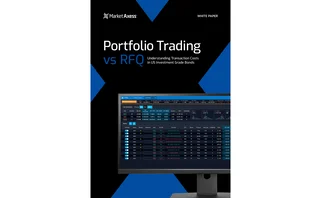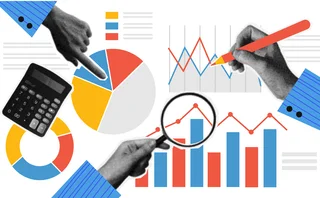Dutch asset manager turns to decision trees for currency predictions
APG has improved prediction accuracy for G10 currency movements after adopting decision tree-based machine learning.

Decision trees are among the more popular applications of machine learning in the capital markets. Uses include finding patterns in request-for-quote (RFQ) datasets and predicting stock prices. Decision trees employ a tree-like model to map out decisions, or “nodes,” and the probabilities of consequences branching out from these nodes, to work through a database and calculate outputs.
Amsterdam-based pension fund APG Asset Management, with $690 billion in assets under management, is using
Only users who have a paid subscription or are part of a corporate subscription are able to print or copy content.
To access these options, along with all other subscription benefits, please contact info@waterstechnology.com or view our subscription options here: http://subscriptions.waterstechnology.com/subscribe
You are currently unable to print this content. Please contact info@waterstechnology.com to find out more.
You are currently unable to copy this content. Please contact info@waterstechnology.com to find out more.
Copyright Infopro Digital Limited. All rights reserved.
As outlined in our terms and conditions, https://www.infopro-digital.com/terms-and-conditions/subscriptions/ (point 2.4), printing is limited to a single copy.
If you would like to purchase additional rights please email info@waterstechnology.com
Copyright Infopro Digital Limited. All rights reserved.
You may share this content using our article tools. As outlined in our terms and conditions, https://www.infopro-digital.com/terms-and-conditions/subscriptions/ (clause 2.4), an Authorised User may only make one copy of the materials for their own personal use. You must also comply with the restrictions in clause 2.5.
If you would like to purchase additional rights please email info@waterstechnology.com
More on Data
A fireside chat with SmartStream’s Akber Jaffer
A fireside chat with SmartStream’s chief executive to discuss his first 15 months at the helm of the business and SmartStream Air 9.0—the firm’s new AI-driven reconciliations platform.
A fireside chat with FactSet’s David Mellars
FactSet’s private markets data strategy, the relationship between risk and performance on the buy side and fixed income track record
Client success story: Münchener Hypothekenbank—NeoXam DataHub
Münchener Hypothekenbank (MünchenerHyp) has been faced with increasing and tightening regulatory parameters and obligations within its business activity, demanding a strategic focus and planning to ensure that information to meet these requirements is…
Portfolio trading vs RFQ: Understanding transaction costs in US investment-grade bonds
The MarketAxess research team explores how such factors as order size, liquidity profiles and associated costs determine whether a portfolio trade or an RFQ list trade is the optimal choice.
Case study: Data monetization—NeoXam DataHub
MFEX by Euroclear is a B2B fund distribution platform, with more than 2,000 fund distributors and 2,500 fund management companies using the platform
Case study: Data distribution—NeoXam DataHub
NeoXam DataHub automates the data management process, allowing data to be easily integrated and distributed, and allocation across the organization efficient and flexible.
Optimizing performance and risk calculations: The critical role of data quality
While robust calculation methods are vital, the foundation of accurate, scalable and auditable data is essential.
Ultra-low latency trading: How low can you go?
AMD discusses the technological advances that are taking high-frequency trading to new lows—known as ultra-low latency trading.







